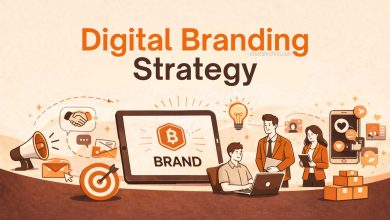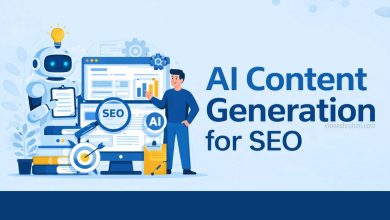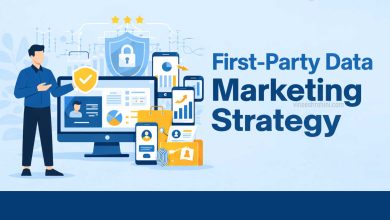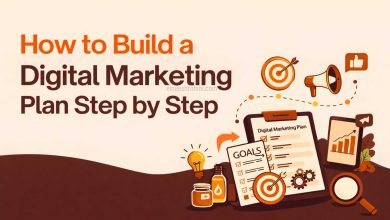What Digital Marketing Does: A Comprehensive Guide to Strategies, Benefits, and Business Impact in 2025
What Digital Marketing Does: In today’s fast-paced, internet-driven world, digital marketing plays a vital role in helping businesses grow, connect with their audience, and stay competitive. Whether you’re a startup, a local business, or a multinational brand, digital marketing is essential for driving traffic, increasing brand awareness, and generating sales. But what exactly does digital marketing do, and why is it so important? This in-depth blog post explores the functions, types, and benefits of digital marketing along with the most searched keywords and titles to help you understand its true impact on modern business.
Table of Contents
Understanding What Digital Marketing Does
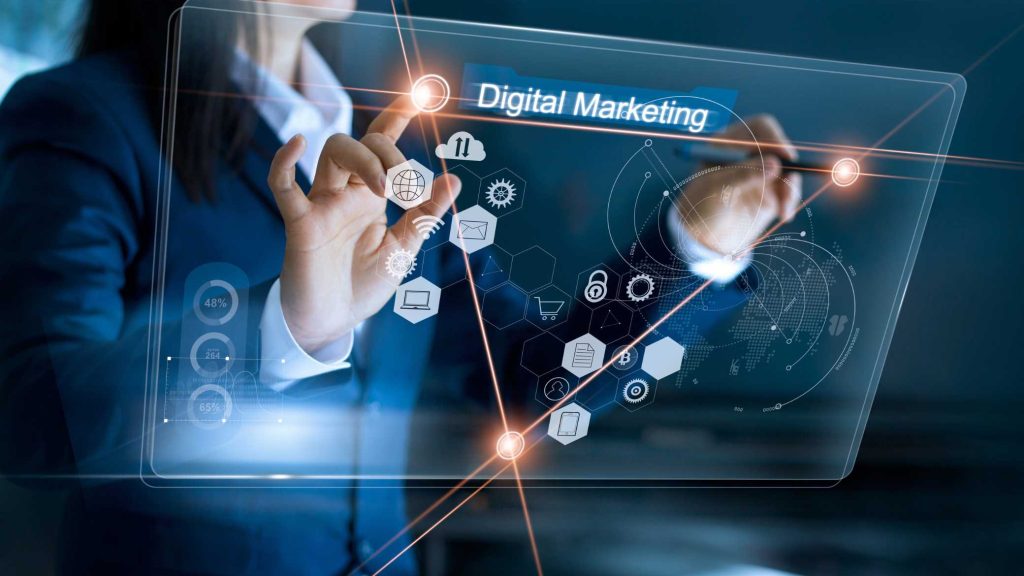
Digital marketing refers to all marketing efforts that use an electronic device or the internet. It involves promoting products or services through online channels such as websites, social media platforms, search engines, email, and mobile apps. Unlike traditional marketing, digital marketing offers real-time data, measurable results, and targeted reach.
Core Functions of Digital Marketing
1. Creates Brand Awareness
Digital marketing increases a business’s visibility across platforms like G, FB, Insta, and YT. It helps you reach new audiences and build a recognizable online presence.
2. Generates Website Traffic
Through search engine optimization (SEO), social media campaigns, paid ads, and email marketing, digital strategies drive potential customers to your website or online store.
Read More: Digital Marketing Automation : Tools and Benefits for Businesses – Comprehensive Guide 2025
3. Engages Target Audience
Digital marketing allows businesses to engage with their audience through content marketing, blog posts, interactive social media posts, videos, and live sessions.
4. Drives Sales and Conversions
Using tools like conversion rate optimization (CRO), remarketing ads, and personalized emails, digital marketing aims to turn visitors into customers and maximize sales.
5. Builds Customer Relationships
Digital platforms make it easier to nurture relationships through regular communication, support, feedback, and loyalty programs.
6. Provides Measurable Results
Analytics tools such as Google Analytics, FB Insights, and email tracking software help monitor campaign performance and optimize strategies for better ROI.
Types of Digital Marketing
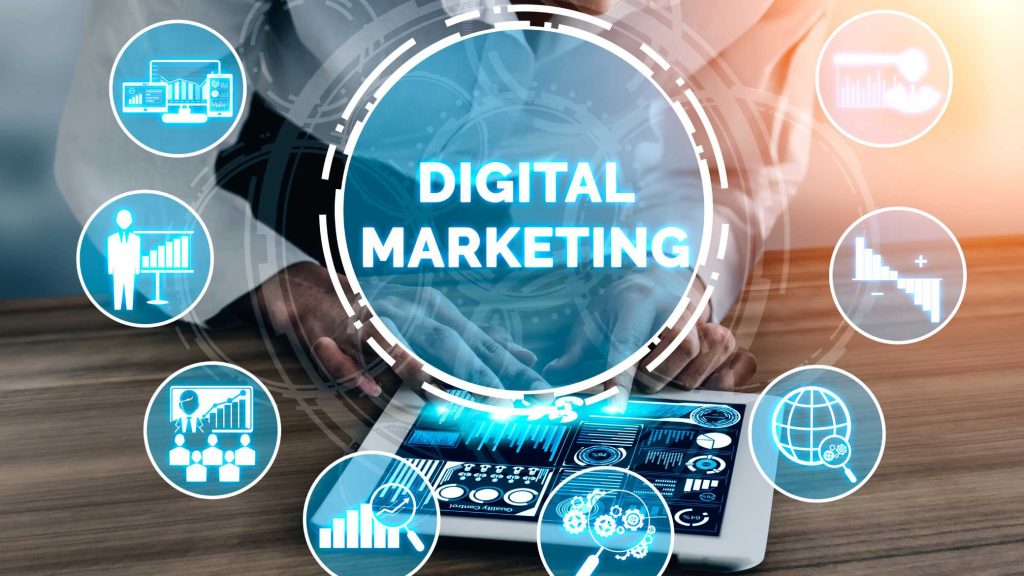
To understand what digital marketing does, it’s important to explore its major components:
1. Search Engine Optimization (SEO)
Improves your website’s visibility on search engines like Google and Bing through keyword optimization, content creation, backlink building, and technical enhancements.
2. Search Engine Marketing (SEM)
Involves paid advertising on search engines, such as Google Ads, to appear on top of search results for targeted keywords.
3. Social Media Marketing (SMM)
Uses platforms like FB, Insta,Twit, and YT to promote products, run ads, build brand loyalty, and engage followers.
Buy Now : Professional Digital Marketing Course
4. Content Marketing
Focuses on creating valuable, informative content like blogs, videos, infographics, and eBooks to attract and retain an audience.
5. Email Marketing
Sends personalized and promotional messages directly to your audience’s inbox to inform, engage, and convert.
6. Affiliate Marketing
Allows businesses to partner with external affiliates who promote their products in exchange for a commission on sales.
7. Influencer Marketing
Collaborates with online influencers to promote products and services to their follower base.
8. Mobile Marketing
Targets users through mobile-optimized content, SMS marketing, push notifications, and mobile apps.
Benefits of Digital Marketing for Businesses

- Cost-Effective Marketing: Compared to traditional marketing, digital strategies are more affordable and offer better ROI.
- Global Reach: Enables businesses to reach a wider audience beyond geographical boundaries.
- Targeted Advertising: Lets you target users based on demographics, interests, behavior, and more.
- Real-Time Performance Tracking: Campaigns can be tracked, analyzed, and optimized in real-time.
- High Conversion Rates: By targeting the right audience with the right message, digital marketing increases conversion opportunities.
- Brand Credibility: A strong online presence builds trust, authority, and brand credibility.
- Scalability: Campaigns can be scaled up or down based on performance, budget, or business goals.
Conclusion
Digital marketing has become a non-negotiable part of doing business in the modern world. It does more than just advertise products—it builds relationships, drives engagement, and fuels long-term growth. Whether you’re trying to build a brand, increase traffic, or improve sales, digital marketing offers the tools and strategies to get there effectively and efficiently. Businesses that adapt and embrace digital transformation will always have the competitive edge in today’s online-first economy.
Buy Now : Professional Digital Marketing Course
Keywords: What does digital marketing do, Importance of digital marketing, Benefits of digital marketing, Types of digital marketing, Digital marketing strategies, How digital marketing works, Digital marketing for small business, Digital marketing services, Online marketing techniques, Digital marketing in India
